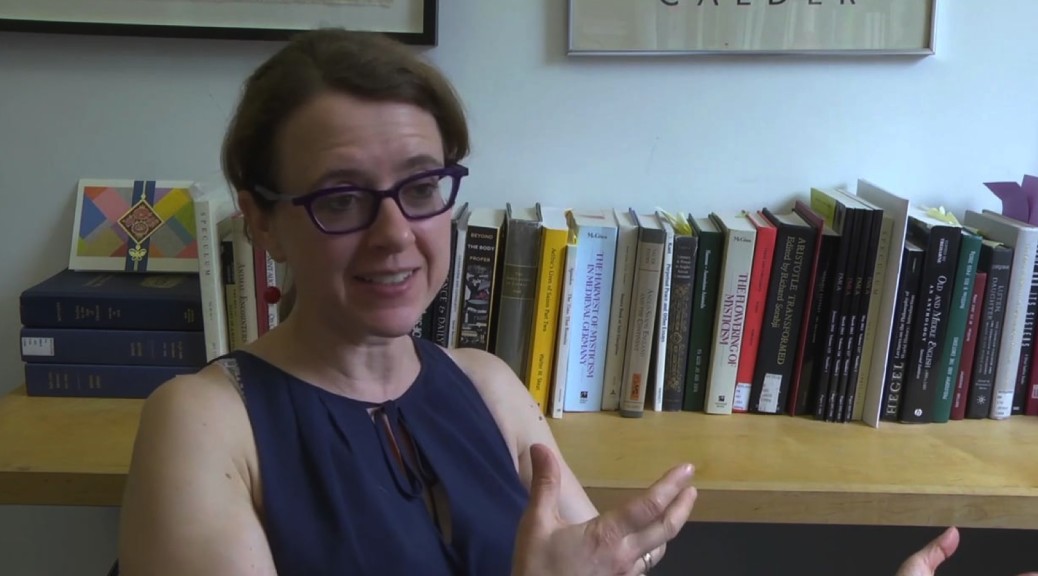PATRICIA DAILEY
Associate Professor of English and Comparative Literature
IRWGS Director, 2014
I asked [James] Valentini’s office and Sharon Marcus’s office—the dean’s office—if they’d be willing to provide funding for events related to Title IX, or any subset issue. Valentini’s office gave us two thousand, Sharon Marcus gave us, I think, a thousand. We put on what was called a teach-in, but it was an information session that we held in the fall, which was really successful. We had over a hundred people. It was in the Law School. Suzanne Goldberg—at first I didn’t want her to speak because I thought it would be too institutional. Then I invited her. She said, “If we don’t include Columbia as one of the factors, what kind of a comment does that say? That we’re in some ways against Columbia? We have to give Columbia a chance to be a participant.” I said, “God, you’re right, sorry. Please join us!” And she did, among other people.
I invited two people who were part of No Red Tape, who are also self-identified as survivors, and so they sat on the panel too. They said it was very helpful at least to even have somebody to speak to. It was a good panel, because we started off with bystander interventions, and not just talking about post, but pre-preparation, or what you can do. Bystander intervention, someone who had done training on that, a Title IX person, an attorney who knows Title IX very well, and also telling people the options. Like, here legally are the different things you can do in various registers, and know that if you do X, Y is excluded, or Y isn’t excluded and all those kinds of technical things that people sometimes have to reinvent the wheel to figure out.
We had a big fall event. It was really successful. I was working with No Red Tape, I was put on their board for a fund outside of Columbia with donors to help develop funding sources for people to have alternate means of funding, either bystander intervention or projects, or whatever it was. I did an independent study with Zoe Ridolfi-Starr, allowing her activism to be counted academically (so long as she wrote a paper), helping her that way, recognizing the work that she was putting in. Then we scheduled a workshop for the spring and did a screening of The Hunting Ground, and another thing through the Law School on sexual harassment in the military. We did a good number of events that were mostly well-attended, partnered with the Law School on two. Bernard Harcourt in the Law School teaches a lot on law related to sexual assault, so he had a whole class that he wanted to attend. That’s been our involvement.

